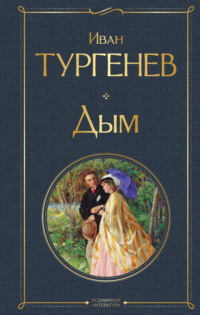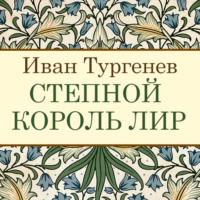 полная версия
полная версияThe Diary of a Superfluous Man, and Other Stories
And I, also, have stuck myself on… But the station is not far off, I think.
Superfluous… I promised to prove the justice of my opinion, and I will fulfil my promise. I do not consider it necessary to mention a thousand details, daily occurrences and incidents, which, moreover, in the eyes of every thoughtful man might serve as incontrovertible proofs in my favour – that is to say, in favour of my view; it is better for me to begin directly with one decidedly important event, after which, probably, no doubt will remain as to the accuracy of the word superfluous. I repeat: I have no intention of entering into details, but I cannot pass over in silence one decidedly curious and noteworthy circumstance, – namely, the strange manner in which my friends treated me (I also had friends) every time I chanced to meet them, or even dropped in to see them. They seemed to grow uneasy; as they came to meet me they either smiled in a not entirely natural manner, looked not at my eyes, not at my feet, as some people do, but chiefly at my cheeks, hastily ejaculated: "Ah! how do you do, Tchulkatúrin!" (Fate had favoured me with that name6) or, "Ah! so here 's Tchulkatúrin!" immediately stepped aside, went apart, and even remained for some time thereafter motionless, as though they were trying to recall something. I noticed all this, because I am not deficient in penetration and the gift of observation; on the whole, I am not stupid; decidedly amusing thoughts sometimes come into my head even, not at all ordinary thoughts; but, as I am a superfluous man with a dumbness inside me, I dread to express my thought, the more so, as I know beforehand that I shall express it very badly. It even seems strange to me, sometimes, that people can talk, and so simply, so freely… "What a calamity!!" you think. I am bound to say that my tongue pretty often itched, in spite of my dumbness; and I actually did utter words in my youth, but in riper years I succeeded in restraining myself almost every time. I would say to myself in an undertone: "See here, now, 't will be better for me to hold my tongue awhile," and I quieted down. We are all experts at holding our tongues; our women in particular have that capacity: one exalted young Russian lady maintains silence so vigorously that such a spectacle is capable of producing a slight shiver and cold perspiration even in a man who has been forewarned. But that is not the point, and it is not for me to criticise other people. I will proceed to the promised story.
Several years ago, thanks to a concurrence of trivial but, for me, very important circumstances, I chanced to pass six months in the county town of O***. This town is built entirely on a declivity. It has about eight hundred inhabitants, remarkably poor; the wretched little houses are outrageously bad; in the main street, under the guise of a pavement, formidable slabs of unhewn limestone crop out whitely here and there, in consequence of which, even the peasant-carts drive around it; in the very centre of an astonishingly untidy square rises a tiny yellowish structure with dark holes, and in the holes sit men in large caps with visors, and pretend to be engaged in trade; there, also, rears itself aloft a remarkably tall, striped pole, and beside the pole, by way of order, at the command of the authorities, a load of yellow hay is kept, and one governmental hen stalks about. In a word, in the town of O*** existence is excellent.
During the early days of my sojourn in that town I nearly went out of my mind with ennui. I must say of myself that, although I am a superfluous man, of course, yet it is not of my own will; I am sickly myself, but I cannot endure anything sickly… I would have no objections to happiness, I have even tried to approach it from the right and from the left… And, therefore, it is not surprising that I can also feel bored, like any other mortal. I found myself in the town of O*** on business connected with the Government service…
Teréntievna is absolutely determined to kill me. Here is a specimen of our conversation:
Teréntievna. O-okh, dear little father! why do you keep writing? It is n't healthy for you to write.
I. But I 'm bored, Teréntievna.
She. But do drink some tea and lie down.
I. But I don't feel sleepy.
She. Akh, dear little father! Why do you say that? The Lord be with you! Lie down now, lie down: it 's better for you.
I. I shall die anyway, Teréntievna.
She. The Lord forbid and have mercy!.. Well, now, do you order me to make tea?
I. I shall not survive this week, Teréntievna.
She. Ii-i, dear little father! Why do you say that?.. So I 'll go and prepare the samovár.
Oh, decrepit, yellow, toothless creature! Is it possible that to you I am not a man!
March 24. A hard frost.On the very day of my arrival in the town of O***, the above-mentioned governmental business caused me to call on a certain Ozhógin, Kiríll Matvyéevitch, one of the chief officials of the county; but I made acquaintance with him, or, as the saying is, got intimate with him, two weeks later. His house was situated on the principal street, and was distinguished from all the rest by its size, its painted roof, and two lions on the gate, belonging to that race of lions which bear a remarkable likeness to the unsuccessful dogs whose birthplace is Moscow. It is possible to deduce from these lions alone that Ozhógin was an opulent man. And, in fact, he owned four hundred souls of serfs;7 he received at his house the best society of the town of O***, and bore the reputation of being a hospitable man. The chief of police came to him, in a broad carroty-hued drozhky drawn by a pair of horses – a remarkably large man, who seemed to have been carved out of shop-worn material. Other officials visited him also: the pettifogger, a yellowish and rather malicious creature; the waggish surveyor, of German extraction, with a Tatár face; the officer of Ways of Communication, a tender soul, a singer, but a scandal-monger; a former county Marshal of Nobility, a gentleman with dyed hair, and rumpled cuffs, trousers with straps, and that extremely noble expression of countenance which is so characteristic of people who have been under trial by the courts. He was visited also by two landed proprietors, inseparable friends, both no longer young, and even threadbare with age, the younger of whom was constantly squelching the elder, and shutting his mouth with one and the same reproach: "Come, that will do, Sergyéi Sergyéitch! What do you know about it? For you write the word próbka [cork] with the letter b… Yes, gentlemen," – he was wont to continue, with all the heat of conviction, addressing those present: – "Sergyéi Sergyéitch writes not próbka, but bróbka." And all present laughed, although, probably, not one of them was particularly distinguished for his skill in orthography; and the unhappy Sergyéi Sergyéitch held his peace, and bowed his head with a pacific smile. But I am forgetting that my days are numbered, and am entering into too great detail. So then, without further circumlocution: Ozhógin was married and had a daughter, Elizavéta Kiríllovna, and I fell in love with that daughter.
Ozhógin himself was a commonplace man, neither good nor bad; his wife was beginning to look a good deal like an aged hen; but their daughter did not take after her parents. She was very comely, of vivacious and gentle disposition. Her bright grey eyes gazed good-naturedly, and in a straightforward manner from beneath childishly-arched brows; she smiled almost constantly, and laughed also quite frequently. Her fresh voice had a very pleasant ring; she moved easily, swiftly, and blushed gaily. She did not dress very elegantly; extremely simple gowns suited her best.
As a rule, I have never made acquaintance quickly, and if I have felt at ease with a person on first meeting, – which, however, has almost never been the case, – I confess that that has spoken strongly in favour of the new acquaintance. I have not known how to behave to women at all, and in their presence I either frowned and assumed a fierce expression, or displayed my teeth in a grin in the stupidest way, and twisted my tongue about in my mouth with embarrassment. With Elizavéta Kiríllovna, on the contrary, I felt myself at home from the very first moment. This is how it came about. One day I arrive at Ozhógin's before dinner, and ask: "Is he at home?" I am told: "Yes, and he is dressing; please come into the hall."8 I go into the hall; I see a young girl in a white gown standing by the window, with her back toward me, and holding a cage in her hands. I curl up a little, according to my habit; but, nevertheless, I cough out of propriety. The young girl turns round quickly, so quickly that her curls strike her in the face, catches sight of me, bows, and with a smile shows me a little box, half-filled with seed.
"Will you excuse me?"
Of course, as is customary in such circumstances, I first bent my head, and, at the same time, crooked and straightened my knees (as though some one had hit me from behind in the back of my legs, which, as everybody knows, serves as a token of excellent breeding and agreeable ease of manner), and then smiled, raised my hand, and waved it twice cautiously and gently in the air. The girl immediately turned away from me, took from the cage a small board, and began to scrape it violently with a knife, and suddenly, without changing her attitude, gave utterance to the following words:
"This is papa's bull-finch… Do you like bull-finches?"
"I prefer canary-birds," – I replied, not without a certain effort.
"And I am fond of canary-birds also; but just look at him, see how pretty he is. See, he is not afraid." – What surprised me was that I was not afraid. – "Come closer. His name is Pópka."
I went up, and bent over.
"He 's very charming, is n't he?"
She turned her face toward me; but we were standing so close to each other that she was obliged to throw her head back a little, in order to look at me with her bright eyes. I gazed at her: the whole of her rosy young face was smiling in so friendly a manner that I smiled also, and almost laughed aloud with pleasure. The door opened; Mr. Ozhógin entered. I immediately went to him, and began to talk with him in a very unembarrassed way; I do not know myself how I came to stay to dinner; I sat out the whole evening, and on the following day, Ozhógin's lackey, a long, purblind fellow, was already smiling at me, as a friend of the house, as he pulled off my overcoat.
To find a refuge, to weave for myself even a temporary nest, to know the joy of daily relations and habits, – that was a happiness which I, a superfluous man, without domestic memories, had not experienced up to that time. If there were anything about me suggestive of a flower, and if that comparison were not so threadbare, I would decide to say that, from that hour, I began to blossom out in spirit. Everything in me and round about me underwent such an instantaneous change! My whole life was illuminated by love, – literally my whole life, down to the smallest details, – like a dark, deserted chamber into which a candle has been brought. I lay down to sleep and I rose up, dressed myself, breakfasted, and smoked my pipe in a way different from my habit; I even skipped as I walked, – really I did, as though wings had suddenly sprouted on my shoulders. I remember that I was not in doubt even for a minute, as to the feeling with which Elizavéta Kiríllovna had inspired me; and from the very first day, I fell in love with her passionately, and from the very first day, too, I knew that I was in love. I saw her every day for the space of three weeks. Those three weeks were the happiest time of my life; but the remembrance of them is painful to me. I cannot think of them alone: that which followed them involuntarily rises up before me, and venomous grief slowly grips the heart which had just grown soft.
When a man is feeling very well, his brain, as every one knows, acts very little. A calm and joyous feeling, a feeling of satisfaction, permeates his whole being; he is swallowed up in it; the consciousness of individuality vanishes in him – he is in a state of bliss, as badly educated poets say. But when, at last, that "spell" passes off, a man sometimes feels vexed and regretful that, in the midst of happiness, he was so unobservant of himself that he did not redouble his thoughts, his reflections, and his memories, that he did not prolong his enjoyment … as though a "blissful" man had any time, and as though it were worth while to reflect about his own emotions! The happy man is like a fly in the sunshine. That is why, when I recall those three weeks, I find it almost impossible to retain in my mind an accurate, definite impression, the more so, as in the whole course of that time, nothing of particular note took place between us… Those twenty days present themselves to me as something warm, young, and fragrant, as a sort of bright streak in my dim and grey-hued life. My memory suddenly becomes implacably faithful and clear, only dating from the moment when the blows of Fate descended upon me, speaking again in the words of those same ill-bred writers.
Yes, those three weeks… However, they did not precisely leave no images behind in me. Sometimes, when I happen to think long of that time, certain memories suddenly float forth from the gloom of the past – as the stars unexpectedly start forth in the evening sky to meet attentively-riveted eyes. Especially memorable to me is one stroll in a grove outside the town. There were four of us: old Madame Ozhógin, Liza, I, and a certain Bizmyónkoff, a petty official of the town of O***, a fair-haired, good-natured, and meek young man. I shall have occasion to allude to him again. Mr. Ozhógin remained at home: his head ached, in consequence of his having slept too long. The day was splendid, warm, and calm. I must remark that gardens of entertainment and public amusement are not to the taste of the Russian. In governmental towns, in the so-called Public Gardens, you will never encounter a living soul at any season of the year; possibly some old woman will seat herself, grunting, on a green bench baked through and through by the sun, in the neighbourhood of a sickly tree, and that only when there is no dirty little shop close to the gate. But if there is a sparse little birch-grove in the vicinity of the town, the merchants, and sometimes the officials, will gladly go thither on Sundays and feast-days, with their samovár, patties, water-melons, and set out all those good gifts on the dusty grass, right by the side of the road, seat themselves around, and eat and drink tea in the sweat of their brows until the very evening. Precisely that sort of small grove existed then two versts distant from the town of O***. We went thither after dinner, drank tea in due form, and then all four of us set off for a stroll through the grove. Bizmyónkoff gave his arm to old Madame Ozhógin; I gave mine to Liza. The day was already inclining toward evening. I was then in the very ardour of first love (not more than a fortnight had elapsed since we had become acquainted), in that condition of passionate and attentive adoration, when your whole soul innocently and involuntarily follows every motion of the beloved being; when you cannot satiate yourself with its presence, or hear enough of its voice; when you smile and look like a convalescent child, and any man of a little experience must see at the first glance, a hundred paces off, what is going on in you.
Up to that day, I had not once chanced to be arm in arm with Liza. I walked by her side, treading softly on the green grass. A light breeze seemed to be fluttering around us, between the white boles of the birch-trees, now and then blowing the ribbon of her hat in my face. With an importunate gaze I watched her, until, at last, she turned gaily to me, and we smiled at each other. The birds chirped approvingly overhead, the blue sky peered caressingly through the fine foliage. My head reeled with excess of pleasure. I hasten to remark that Liza was not in the least in love with me. She liked me; in general, she was not shy of any one, but I was not fated to disturb her childish tranquillity. She walked arm in arm with me, as with a brother. She was seventeen years old at the time… And yet, that same evening, in my presence, there began in her that quiet, inward fermentation, which precedes the conversion of a child into a woman… I was witness to that change of the whole being, that innocent perplexity, that tremulous pensiveness; I was the first to note that sudden softness of glance, that ringing uncertainty of voice – and, oh, stupid fool! oh, superfluous man! for a whole week I was not ashamed to assume that I, I was the cause of that change!
This is the way it happened.
We strolled for quite a long time, until evening, and chatted very little. I held my peace, like all inexperienced lovers, and she, in all probability, had nothing to say to me; but she seemed to be meditating about something, and shook her head in a queer sort of way, pensively nibbling at a leaf which she had plucked. Sometimes she began to stride forward in such a decided way … and then suddenly halted, waited for me and gazed about her with eyebrows elevated and an absent-minded smile. On the preceding evening, we had read together "The Prisoner of the Caucasus."9 With what eagerness had she listened to me, with her face propped on both hands, and her bosom resting against the table! I tried to talk about our reading of the evening before; she blushed, asked me whether I had given the bull-finch any hemp-seed before we started, began to sing loudly some song, then suddenly ceased. The grove ended on one side in a rather steep and lofty cliff; below flowed a small, meandering river, and beyond it, further than the eye could see, stretched endless meadows, now swelling slightly like waves, now spreading out like a table-cloth, here and there intersected with ravines. Liza and I were the first to emerge on the edge of the grove; Bizmyónkoff remained behind with the old lady. We came out, halted, and both of us involuntarily narrowed our eyes: directly opposite us, in the midst of the red-hot mist, the sun was setting, huge and crimson. Half the sky was aglow and flaming; the red rays beat aslant across the meadows, casting a scarlet reflection even on the shady side of the ravine, and lay like fiery lead upon the river, where it was not hidden under overhanging bushes, and seemed to be reposing in the lap of the ravine and the grove. We stood there drenched in the blazing radiance. It is beyond my power to impart all the passionate solemnity of that picture. They say that the colour red appeared to one blind man like the sound of a trumpet; I do not know to what degree that comparison is just; but, actually, there was something challenging in that flaming gold of the evening air, in the crimson glow of sky and earth. I cried out with rapture, and immediately turned to Liza. She was gazing straight at the sun. I remember, the glare of the sunset was reflected in her eyes in tiny, flaming spots. She was startled, profoundly moved. She made no answer to my exclamation, did not stir for a long time, and hung her head… I stretched out my hand to her; she turned away from me, and suddenly burst into tears. I gazed at her with secret, almost joyful surprise… Bizmyónkoff's voice rang out a couple of paces from us. Liza hastily wiped her eyes, and with a wavering smile looked at me. The old lady emerged from the grove, leaning on the arm of her fair-haired escort; both of them, in their turn, admired the view. The old lady asked Liza some question, and I remember that I involuntarily shivered when, in reply, her daughter's broken voice, like cracked glass, resounded in reply. In the meanwhile, the sun had set, the glow was beginning to die out. We retraced our steps. I again gave Liza my arm. It was still light in the grove, and I could clearly discern her features. She was embarrassed, and did not raise her eyes. The flush which had spread all over her face did not disappear; she seemed still to be standing in the rays of the setting sun… Her arm barely touched mine. For a long time I could not start a conversation, so violently was my heart beating. We caught glimpses of the carriage far away, through the trees; the coachman was driving to meet us at a foot-pace over the friable sand of the road.
"Lizavéta Kiríllovna," – I said at last, – "why did you weep?"
"I don't know," – she answered after a brief pause, looking at me with her gentle eyes, still wet with tears, – their glance seemed to me to have undergone a change, – and again fell silent.
"I see that you love nature…" I went on. – That was not in the least what I had meant to say, and my tongue hardly stammered out the last phrase to the end. She shook her head. I could not utter a word more… I was waiting for something … not a confession – no, indeed! I was waiting for a confiding glance, a question… But Liza stared at the ground and held her peace. I repeated once more, in an undertone: "Why?" and received no reply. She was embarrassed, almost ashamed, I saw that.
A quarter of an hour later, we were all seated in the carriage and driving toward the town. The horses advanced at a brisk trot; we dashed swiftly through the moist, darkening air. I suddenly began to talk, incessantly addressing myself now to Bizmyónkoff, now to Madame Ozhógin. I did not look at Liza, but I could not avoid perceiving that from the corner of the carriage her gaze never once rested on me. At home she recovered with a start, but would not read with me, and soon went off to bed. The break – that break of which I have spoken – had been effected in her. She had ceased to be a little girl; she was already beginning to expect … like myself … something or other. She did not have to wait long.
But that night I returned to my lodgings in a state of utter enchantment. The confused something, which was not exactly a foreboding, nor yet exactly a suspicion, that had arisen within me vanished: I ascribed the sudden constraint in Liza's behaviour toward me to maidenly modesty, to timidity… Had not I read a thousand times in many compositions, that the first appearance of love agitates and alarms a young girl? I felt myself very happy, and already began to construct various plans in my own mind…
If any one had then whispered in my ear: "Thou liest, my dear fellow! that 's not in store for thee at all, my lad! thou art doomed to die alone in a miserable little house, to the intolerable grumbling of an old peasant-woman, who can hardly wait for thy death, in order that she may sell thy boots for a song…"
Yes, one involuntarily says, with the Russian philosopher: "How is one to know what he does not know?" – Until to-morrow.
March 25. A white winter day.I have read over what I wrote yesterday, and came near tearing up the whole note-book. It seems to me that my style of narrative is too protracted and too mawkish. However, as my remaining memories of that period present nothing cheerful, save the joy of that peculiar nature which Lérmontoff had in view when he said that it is a cheerful and a painful thing to touch the ulcers of ancient wounds, then why should not I observe myself? But I must not impose upon kindness. Therefore I will continue without mawkishness.
For the space of a whole week, after that stroll outside the town, my position did not improve in the least, although the change in Liza became more perceptible every day. As I have already stated, I interpreted this change in the most favourable possible light for myself… The misfortune of solitary and timid men – those who are timid through self-love – consists precisely in this – that they, having eyes, and even keeping them staring wide open, see nothing, or see it in a false light, as though through coloured glasses. And their own thoughts and observations hinder them at every step.
In the beginning of our acquaintance Liza had treated me trustingly and frankly, like a child; perhaps, even, in her liking for me there was something of simple, childish affection… But when that strange, almost sudden crisis took place in her, after a short perplexity, she felt herself embarrassed in my presence, she turned away from me involuntarily, and at the same time grew sad and pensive… She was expecting … what? She herself did not know … but I … I, as I have already said, rejoiced at that crisis… As God is my witness, I almost swooned with rapture, as the saying is. However, I am willing to admit that any one else in my place might have been deceived also… Who is devoid of self-love? It is unnecessary to say that all this became clear to me only after a time, when I was compelled to fold my injured wings, which were not any too strong at best.









